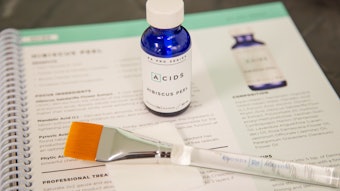Using the latest genetic technology, researchers have begun to discover the exact molecular reasons why foods such as turmeric, a popular curry spice, and ordinary orange juice are good for the health of hearts and arteries.
Two French research teams are reporting studies describing the range of genes that are affected by curcumin, the active ingredient in turmeric, and hesperidin, an antioxidant that is a prominent component of orange juice. Their reports were delivered at the American Heart Association's Basic Cardiovascular Sciences Conference 2009, held in Lake Las Vegas.
"We used a microarray approach," said Dragan Milenkovic, a research scientist at the Centre de Clermont-Ferrand/Thiex in Saint Genes Champanelle, who described the turmeric study. "We have slides with samples of all the genes, and we compared the expression of each gene to see which of them had their activity modified by exposure to curcumin."
The molecular study was done with mouse genes, and was preceded by a trial in living mice. The researchers used curcumin, which is a polyphenol, a form of antioxidant. Like other antioxidants, curcumin is known to help prevent against arterial buildup of plaque, the fatty deposits that eventually can block blood vessels.
The molecular study was preceded by a trial in which mice given a daily curcumin supplement for 16 weeks were found to have a 26% lower level of fat deposits in the aorta, the main artery of the heart. The researchers then isolated genetic material from the mice and exposed it to curcumin. They found altered expression of 2,252 genes, whose activity included cellular signaling and adhesion, inflammation and fat metabolism.
The orange juice study was done by a different team of researchers at the same institute, in human volunteers. Twenty-four men who were healthy overall but who had cardiovascular risk factors such as obesity took part. In three one-month periods, the men drank one of three drinks a day: 500 milliliters of orange juice (containing 292 milligrams of hesperidin), 500 milliliters of an energy drink, or 500 milliliters of the same drink enriched with 292 milligrams of hesperidin.
The study found a trend toward improved blood pressure and better function of the endothelium, the delicate inner lining of blood vessels, in the men who consumed hesperidin, either in orange juice or as a supplement. Genetic studies found that hesperidin affected activity of 1,820 genes from white blood cells.
Neither experiment is a reason to take a supplement of either curcumin or hesperidin, Milenkovic said. "Some of these at high doses can be bad," he said of supplements in general. "They can be beneficial for the health if used in nutritional doses."
Nutritional supplements are always attractive to a lot of people, said Dr. Thomas L. Force, professor of medicine at Thomas Jefferson University, and a spokesman for the American Heart Association. "They are of significant interest to the lay public, given the fascination with this approach to the prevention of disease," said Force, who is also clinical director of the university's Center for Translational Medicine. "People have an aversion to taking medicines."
But neither of the two studies adds definitive information about the preventive value of the nutrients, Force said. "They are add-ons to studies that have shown the possible value of antioxidants," he said. "Most of the literature is not at a very mechanistic level or picks out one specific protein that is regulated. These studies do provide a more global approach to how these compounds may function to do what they are purported to do."
And the studies are too preliminary to form the basis of dietary recommendations, Force said. "We can't make dietary recommendations until more studies are done," he said. "These may open the way to doing more studies."
More information
Learn about turmeric from the U.S. National Center for Complementary and Alternative Medicine.
HealthDay News, July 21, 2009










